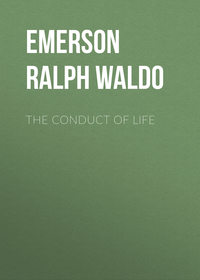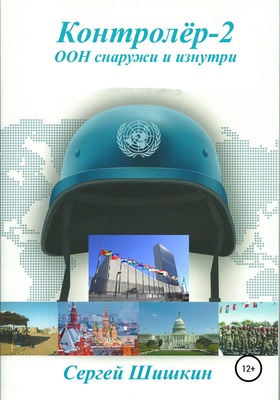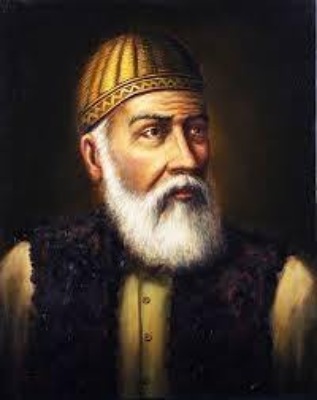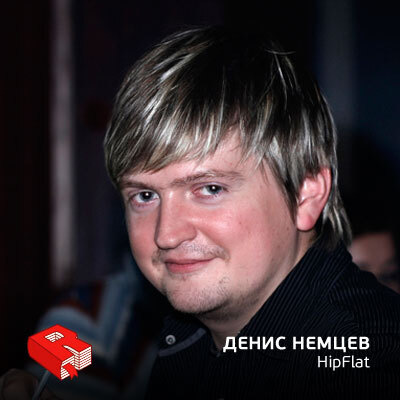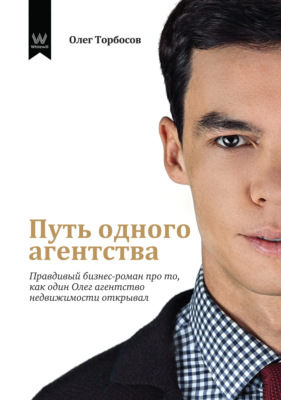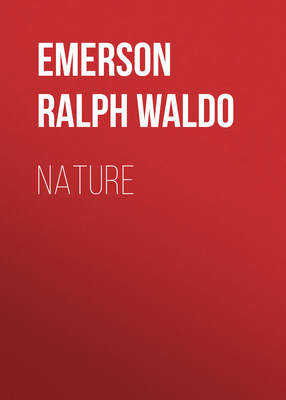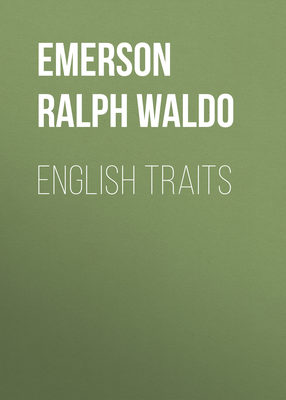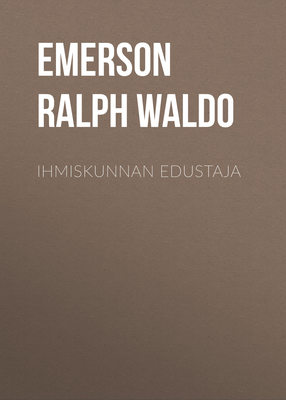Читать книгу: «The Conduct of Life», страница 11
'Tis a Dutch proverb, that "paint costs nothing," such are its preserving qualities in damp climates. Well, sunshine costs less, yet is finer pigment. And so of cheerfulness, or a good temper, the more it is spent, the more of it remains. The latent heat of an ounce of wood or stone is inexhaustible. You may rub the same chip of pine to the point of kindling, a hundred times; and the power of happiness of any soul is not to be computed or drained. It is observed that a depression of spirits develops the germs of a plague in individuals and nations.
It is an old commendation of right behavior, "Aliis lœtus, sapiens sibi," which our English proverb translates, "Be merry and wise." I know how easy it is to men of the world to look grave and sneer at your sanguine youth, and its glittering dreams. But I find the gayest castles in the air that were ever piled, far better for comfort and for use, than the dungeons in the air that are daily dug and caverned out by grumbling, discontented people. I know those miserable fellows, and I hate them, who see a black star always riding through the light and colored clouds in the sky overhead: waves of light pass over and hide it for a moment, but the black star keeps fast in the zenith. But power dwells with cheerfulness; hope puts us in a working mood, whilst despair is no muse, and untunes the active powers. A man should make life and Nature happier to us, or he had better never been born. When the political economist reckons up the unproductive classes, he should put at the head this class of pitiers of themselves, cravers of sympathy, bewailing imaginary disasters. An old French verse runs, in my translation: —
Some of your griefs you have cured,
And the sharpest you still have survived;
But what torments of pain you endured
From evils that never arrived!
There are three wants which never can be satisfied: that of the rich, who wants something more; that of the sick, who wants something different; and that of the traveller, who says, 'Anywhere but here.' The Turkish cadi said to Layard, "After the fashion of thy people, thou hast wandered from one place to another, until thou art happy and content in none." My countrymen are not less infatuated with the rococo toy of Italy. All America seems on the point of embarking for Europe. But we shall not always traverse seas and lands with light purposes, and for pleasure, as we say. One day we shall cast out the passion for Europe, by the passion for America. Culture will give gravity and domestic rest to those who now travel only as not knowing how else to spend money. Already, who provoke pity like that excellent family party just arriving in their well-appointed carriage, as far from home and any honest end as ever? Each nation has asked successively, 'What are they here for?' until at last the party are shamefaced, and anticipate the question at the gates of each town.
Genial manners are good, and power of accommodation to any circumstance, but the high prize of life, the crowning fortune of a man is to be born with a bias to some pursuit, which finds him in employment and happiness, – whether it be to make baskets, or broadswords, or canals, or statutes, or songs. I doubt not this was the meaning of Socrates, when he pronounced artists the only truly wise, as being actually, not apparently so.
In childhood, we fancied ourselves walled in by the horizon, as by a glass bell, and doubted not, by distant travel, we should reach the baths of the descending sun and stars. On experiment, the horizon flies before us, and leaves us on an endless common, sheltered by no glass bell. Yet 'tis strange how tenaciously we cling to that bell-astronomy, of a protecting domestic horizon. I find the same illusion in the search after happiness, which I observe, every summer, recommenced in this neighborhood, soon after the pairing of the birds. The young people do not like the town, do not like the sea-shore, they will go inland; find a dear cottage deep in the mountains, secret as their hearts. They set forth on their travels in search of a home: they reach Berkshire; they reach Vermont; they look at the farms; – good farms, high mountain-sides: but where is the seclusion? The farm is near this; 'tis near that; they have got far from Boston, but 'tis near Albany, or near Burlington, or near Montreal. They explore a farm, but the house is small, old, thin; discontented people lived there, and are gone: – there's too much sky, too much out-doors; too public. The youth aches for solitude. When he comes to the house, he passes through the house. That does not make the deep recess he sought. 'Ah! now, I perceive,' he says, 'it must be deep with persons; friends only can give depth.' Yes, but there is a great dearth, this year, of friends; hard to find, and hard to have when found: they are just going away: they too are in the whirl of the flitting world, and have engagements and necessities. They are just starting for Wisconsin; have letters from Bremen: – see you again, soon. Slow, slow to learn the lesson, that there is but one depth, but one interior, and that is – his purpose. When joy or calamity or genius shall show him it, then woods, then farms, then city shopmen and cab-drivers, indifferently with prophet or friend, will mirror back to him its unfathomable heaven, its populous solitude.
The uses of travel are occasional, and short; but the best fruit it finds, when it finds it, is conversation; and this is a main function of life. What a difference in the hospitality of minds! Inestimable is he to whom we can say what we cannot say to ourselves. Others are involuntarily hurtful to us, and bereave us of the power of thought, impound and imprison us. As, when there is sympathy, there needs but one wise man in a company, and all are wise, – so, a blockhead makes a blockhead of his companion. Wonderful power to benumb possesses this brother. When he comes into the office or public room, the society dissolves; one after another slips out, and the apartment is at his disposal. What is incurable but a frivolous habit?
A fly is as untamable as a hyena. Yet folly in the sense of fun, fooling, or dawdling can easily be borne; as Talleyrand said, "I find nonsense singularly refreshing;" but a virulent, aggressive fool taints the reason of a household. I have seen a whole family of quiet, sensible people unhinged and beside themselves, victims of such a rogue. For the steady wrongheadedness of one perverse person irritates the best: since we must withstand absurdity. But resistance only exasperates the acrid fool, who believes that Nature and gravitation are quite wrong, and he only is right. Hence all the dozen inmates are soon perverted, with whatever virtues and industries they have, into contradictors, accusers, explainers, and repairers of this one malefactor; like a boat about to be overset, or a carriage run away with, – not only the foolish pilot or driver, but everybody on board is forced to assume strange and ridiculous attitudes, to balance the vehicle and prevent the upsetting. For remedy, whilst the case is yet mild, I recommend phlegm and truth: let all the truth that is spoken or done be at the zero of indifferency, or truth itself will be folly. But, when the case is seated and malignant, the only safety is in amputation; as seamen say, you shall cut and run. How to live with unfit companions? – for, with such, life is for the most part spent: and experience teaches little better than our earliest instinct of self-defence, namely, not to engage, not to mix yourself in any manner with them; but let their madness spend itself unopposed; – you are you, and I am I.
Conversation is an art in which a man has all mankind for his competitors, for it is that which all are practising every day while they live. Our habit of thought, – take men as they rise, – is not satisfying; in the common experience, I fear, it is poor and squalid. The success which will content them, is, a bargain, a lucrative employment, an advantage gained over a competitor, a marriage, a patrimony, a legacy, and the like. With these objects, their conversation deals with surfaces: politics, trade, personal defects, exaggerated bad news, and the rain. This is forlorn, and they feel sore and sensitive. Now, if one comes who can illuminate this dark house with thoughts, show them their native riches, what gifts they have, how indispensable each is, what magical powers over nature and men; what access to poetry, religion, and the powers which constitute character; he wakes in them the feeling of worth, his suggestions require new ways of living, new books, new men, new arts and sciences, – then we come out of our egg-shell existence into the great dome, and see the zenith over and the nadir under us. Instead of the tanks and buckets of knowledge to which we are daily confined, we come down to the shore of the sea, and dip our hands in its miraculous waves. 'Tis wonderful the effect on the company. They are not the men they were. They have all been to California, and all have come back millionnaires. There is no book and no pleasure in life comparable to it. Ask what is best in our experience, and we shall say, a few pieces of plain-dealing with wise people. Our conversation once and again has apprised us that we belong to better circles than we have yet beheld; that a mental power invites us, whose generalizations are more worth for joy and for effect than anything that is now called philosophy or literature. In excited conversation, we have glimpses of the Universe, hints of power native to the soul, far-darting lights and shadows of an Andes landscape, such as we can hardly attain in lone meditation. Here are oracles sometimes profusely given, to which the memory goes back in barren hours.
Add the consent of will and temperament, and there exists the covenant of friendship. Our chief want in life, is, somebody who shall make us do what we can. This is the service of a friend. With him we are easily great. There is a sublime attraction in him to whatever virtue is in us. How he flings wide the doors of existence! What questions we ask of him! what an understanding we have! how few words are needed! It is the only real society. An Eastern poet, Ali Ben Abu Taleb, writes with sad truth, —
"He who has a thousand friends has not a friend to spare,
And he who has one enemy shall meet him everywhere."
But few writers have said anything better to this point than Hafiz, who indicates this relation as the test of mental health: "Thou learnest no secret until thou knowest friendship, since to the unsound no heavenly knowledge enters." Neither is life long enough for friendship. That is a serious and majestic affair, like a royal presence, or a religion, and not a postilion's dinner to be eaten on the run. There is a pudency about friendship, as about love, and though fine souls never lose sight of it, yet they do not name it. With the first class of men our friendship or good understanding goes quite behind all accidents of estrangement, of condition, of reputation. And yet we do not provide for the greatest good of life. We take care of our health; we lay up money; we make our roof tight, and our clothing sufficient; but who provides wisely that he shall not be wanting in the best property of all, – friends? We know that all our training is to fit us for this, and we do not take the step towards it. How long shall we sit and wait for these benefactors?
It makes no difference, in looking back five years, how you have been dieted or dressed; whether you have been lodged on the first floor or the attic; whether you have had gardens and baths, good cattle and horses, have been carried in a neat equipage, or in a ridiculous truck: these things are forgotten so quickly, and leave no effect. But it counts much whether we have had good companions, in that time; – almost as much as what we have been doing. And see the overpowering importance of neighborhood in all association. As it is marriage, fit or unfit, that makes our home, so it is who lives near us of equal social degree, – a few people at convenient distance, no matter how bad company, – these, and these only, shall be your life's companions: and all those who are native, congenial, and by many an oath of the heart, sacramented to you, are gradually and totally lost. You cannot deal systematically with this fine element of society, and one may take a good deal of pains to bring people together, and to organize clubs and debating societies, and yet no result come of it. But it is certain that there is a great deal of good in us that does not know itself, and that a habit of union and competition brings people up and keeps them up to their highest point; that life would be twice or ten times life, if spent with wise and fruitful companions. The obvious inference is, a little useful deliberation and preconcert, when one goes to buy house and land.
But we live with people on other platforms; we live with dependents, not only with the young whom we are to teach all we know, and clothe with the advantages we have earned, but also with those who serve us directly, and for money. Yet the old rules hold good. Let not the tie be mercenary, though the service is measured by money. Make yourself necessary to somebody. Do not make life hard to any. This point is acquiring new importance in American social life. Our domestic service is usually a foolish fracas of unreasonable demand on one side, and shirking on the other. A man of wit was asked, in the train, what was his errand in the city? He replied, "I have been sent to procure an angel to do cooking." A lady complained to me, that, of her two maidens, one was absent-minded, and the other was absent-bodied. And the evil increases from the ignorance and hostility of every ship-load of the immigrant population swarming into houses and farms. Few people discern that it rests with the master or the mistress what service comes from the man or the maid; that this identical hussy was a tutelar spirit in one house, and a haridan in the other. All sensible people are selfish, and nature is tugging at every contract to make the terms of it fair. If you are proposing only your own, the other party must deal a little hardly by you. If you deal generously, the other, though selfish and unjust, will make an exception in your favor, and deal truly with you. When I asked an iron-master about the slag and cinder in railroad iron, – "O," he said, "there's always good iron to be had: if there's cinder in the iron, 'tis because there was cinder in the pay."
But why multiply these topics, and their illustrations, which are endless? Life brings to each his task, and, whatever art you select, algebra, planting, architecture, poems, commerce, politics, – all are attainable, even to the miraculous triumphs, on the same terms, of selecting that for which you are apt; – begin at the beginning, proceed in order, step by step. 'Tis as easy to twist iron anchors, and braid cannons, as to braid straw, to boil granite as to boil water, if you take all the steps in order. Wherever there is failure, there is some giddiness, some superstition about luck, some step omitted, which Nature never pardons. The happy conditions of life may be had on the same terms. Their attraction for you is the pledge that they are within your reach. Our prayers are prophets. There must be fidelity, and there must be adherence. How respectable the life that clings to its objects! Youthful aspirations are fine things, your theories and plans of life are fair and commendable: – but will you stick? Not one, I fear, in that Common full of people, or, in a thousand, but one: and, when you tax them with treachery, and remind them of their high resolutions, they have forgotten that they made a vow. The individuals are fugitive, and in the act of becoming something else, and irresponsible. The race is great, the ideal fair, but the men whiffling and unsure. The hero is he who is immovably centred. The main difference between people seems to be, that one man can come under obligations on which you can rely, – is obligable; and another is not. As he has not a law within him, there's nothing to tie him to.
'Tis inevitable to name particulars of virtue, and of condition, and to exaggerate them. But all rests at last on that integrity which dwarfs talent, and can spare it. Sanity consists in not being subdued by your means. Fancy prices are paid for position, and for the culture of talent, but to the grand interests, superficial success is of no account. The man, – it is his attitude, – not feats, but forces, – not on set days and public occasions, but, at all hours, and in repose alike as in energy, still formidable, and not to be disposed of. The populace says, with Horne Tooke, "If you would be powerful, pretend to be powerful." I prefer to say, with the old prophet, "Seekest thou great things? seek them not: " – or, what was said of a Spanish prince, "The more you took from him, the greater he looked." Plus on lui ôte, plus il est grand.
The secret of culture is to learn, that a few great points steadily reappear, alike in the poverty of the obscurest farm, and in the miscellany of metropolitan life, and that these few are alone to be regarded, – the escape from all false ties; courage to be what we are; and love of what is simple and beautiful; independence, and cheerful relation, these are the essentials, – these, and the wish to serve, – to add somewhat to the well-being of men.
VIII
BEAUTY
Was never form and never face
So sweet to SEYD as only grace
Which did not slumber like a stone
But hovered gleaming and was gone.
Beauty chased he everywhere,
In flame, in storm, in clouds of air.
He smote the lake to feed his eye
With the beryl beam of the broken wave
He flung in pebbles well to hear
The moment's music which they gave.
Oft pealed for him a lofty tone
From nodding pole and belting zone.
He heard a voice none else could hear
From centred and from errant sphere.
The quaking earth did quake in rhyme,
Seas ebbed and flowed in epic chime.
In dens of passion, and pits of wo,
He saw strong Eros struggling through,
To sun the dark and solve the curse,
And beam to the bounds of the universe.
While thus to love he gave his days
In loyal worship, scorning praise,
How spread their lures for him, in vain,
Thieving Ambition and paltering Gain!
He thought it happier to be dead,
To die for Beauty, than live for bread.
BEAUTY
The spiral tendency of vegetation infects education also. Our books approach very slowly the things we most wish to know. What a parade we make of our science, and how far off, and at arm's length, it is from its objects! Our botany is all names, not powers: poets and romancers talk of herbs of grace and healing; but what does the botanist know of the virtues of his weeds? The geologist lays bare the strata, and can tell them all on his fingers: but does he know what effect passes into the man who builds his house in them? what effect on the race that inhabits a granite shelf? what on the inhabitants of marl and of alluvium?
We should go to the ornithologist with a new feeling, if he could teach us what the social birds say, when they sit in the autumn council, talking together in the trees. The want of sympathy makes his record a dull dictionary. His result is a dead bird. The bird is not in its ounces and inches, but in its relations to Nature; and the skin or skeleton you show me, is no more a heron, than a heap of ashes or a bottle of gases into which his body has been reduced, is Dante or Washington. The naturalist is led from the road by the whole distance of his fancied advance. The boy had juster views when he gazed at the shells on the beach, or the flowers in the meadow, unable to call them by their names, than the man in the pride of his nomenclature. Astrology interested us, for it tied man to the system. Instead of an isolated beggar, the farthest star felt him, and he felt the star. However rash and however falsified by pretenders and traders in it, the hint was true and divine, the soul's avowal of its large relations, and, that climate, century, remote natures, as well as near, are part of its biography. Chemistry takes to pieces, but it does not construct. Alchemy which sought to transmute one element into another, to prolong life, to arm with power, – that was in the right direction. All our science lacks a human side. The tenant is more than the house. Bugs and stamens and spores, on which we lavish so many years, are not finalities, and man, when his powers unfold in order, will take Nature along with him, and emit light into all her recesses. The human heart concerns us more than the poring into microscopes, and is larger than can be measured by the pompous figures of the astronomer.
We are just so frivolous and skeptical. Men hold themselves cheap and vile: and yet a man is a fagot of thunderbolts. All the elements pour through his system: he is the flood of the flood, and fire of the fire; he feels the antipodes and the pole, as drops of his blood: they are the extension of his personality. His duties are measured by that instrument he is; and a right and perfect man would be felt to the centre of the Copernican system. 'Tis curious that we only believe as deep as we live. We do not think heroes can exert any more awful power than that surface-play which amuses us. A deep man believes in miracles, waits for them, believes in magic, believes that the orator will decompose his adversary; believes that the evil eye can wither, that the heart's blessing can heal; that love can exalt talent; can overcome all odds. From a great heart secret magnetisms flow incessantly to draw great events. But we prize very humble utilities, a prudent husband, a good son, a voter, a citizen, and deprecate any romance of character; and perhaps reckon only his money value, – his intellect, his affection, as a sort of bill of exchange, easily convertible into fine chambers, pictures, music, and wine.
The motive of science was the extension of man, on all sides, into Nature, till his hands should touch the stars, his eyes see through the earth, his ears understand the language of beast and bird, and the sense of the wind; and, through his sympathy, heaven and earth should talk with him. But that is not our science. These geologies, chemistries, astronomies, seem to make wise, but they leave us where they found us. The invention is of use to the inventor, of questionable help to any other. The formulas of science are like the papers in your pocket-book, of no value to any but the owner. Science in England, in America, is jealous of theory, hates the name of love and moral purpose. There's a revenge for this inhumanity. What manner of man does science make? The boy is not attracted. He says, I do not wish to be such a kind of man as my professor is. The collector has dried all the plants in his herbal, but he has lost weight and humor. He has got all snakes and lizards in his phials, but science has done for him also, and has put the man into a bottle. Our reliance on the physician is a kind of despair of ourselves. The clergy have bronchitis, which does not seem a certificate of spiritual health. Macready thought it came of the falsetto of their voicing. An Indian prince, Tisso, one day riding in the forest, saw a herd of elk sporting. "See how happy," he said, "these browsing elks are! Why should not priests, lodged and fed comfortably in the temples, also amuse themselves?" Returning home, he imparted this reflection to the king. The king, on the next day, conferred the sovereignty on him, saying, "Prince, administer this empire for seven days: at the termination of that period, I shall put thee to death." At the end of the seventh day, the king inquired, "From what cause hast thou become so emaciated?" He answered, "From the horror of death." The monarch rejoined: "Live, my child, and be wise. Thou hast ceased to take recreation, saying to thyself, in seven days I shall be put to death. These priests in the temple incessantly meditate on death; how can they enter into healthful diversions?" But the men of science or the doctors or the clergy are not victims of their pursuits, more than others. The miller, the lawyer, and the merchant, dedicate themselves to their own details, and do not come out men of more force. Have they divination, grand aims, hospitality of soul, and the equality to any event, which we demand in man, or only the reactions of the mill, of the wares, of the chicane?
No object really interests us but man, and in man only his superiorities; and, though we are aware of a perfect law in Nature, it has fascination for us only through its relation to him, or, as it is rooted in the mind. At the birth of Winckelmann, more than a hundred years ago, side by side with this arid, departmental, post mortem science, rose an enthusiasm in the study of Beauty; and perhaps some sparks from it may yet light a conflagration in the other. Knowledge of men, knowledge of manners, the power of form, and our sensibility to personal influence, never go out of fashion. These are facts of a science which we study without book, whose teachers and subjects are always near us.
So inveterate is our habit of criticism, that much of our knowledge in this direction belongs to the chapter of pathology. The crowd in the street oftener furnishes degradations than angels or redeemers: but they all prove the transparency. Every spirit makes its house; and we can give a shrewd guess from the house to the inhabitant. But not less does Nature furnish us with every sign of grace and goodness. The delicious faces of children, the beauty of school-girls, "the sweet seriousness of sixteen," the lofty air of well-born, well-bred boys, the passionate histories in the looks and manners of youth and early manhood, and the varied power in all that well-known company that escort us through life, – we know how these forms thrill, paralyze, provoke, inspire, and enlarge us.
Beauty is the form under which the intellect prefers to study the world. All privilege is that of beauty; for there are many beauties; as, of general nature, of the human face and form, of manners, of brain, or method, moral beauty, or beauty of the soul.
The ancients believed that a genius or demon took possession at birth of each mortal, to guide him; that these genii were sometimes seen as a flame of fire partly immersed in the bodies which they governed; – on an evil man, resting on his head; in a good man, mixed with his substance. They thought the same genius, at the death of its ward, entered a new-born child, and they pretended to guess the pilot, by the sailing of the ship. We recognize obscurely the same fact, though we give it our own names. We say, that every man is entitled to be valued by his best moment. We measure our friends so. We know, they have intervals of folly, whereof we take no heed, but wait the reappearings of the genius, which are sure and beautiful. On the other side, everybody knows people who appear beridden, and who, with all degrees of ability, never impress us with the air of free agency. They know it too, and peep with their eyes to see if you detect their sad plight. We fancy, could we pronounce the solving word, and disenchant them, the cloud would roll up, the little rider would be discovered and unseated, and they would regain their freedom. The remedy seems never to be far off, since the first step into thought lifts this mountain of necessity. Thought is the pent air-ball which can rive the planet, and the beauty which certain objects have for him, is the friendly fire which expands the thought, and acquaints the prisoner that liberty and power await him.
The question of Beauty takes us out of surfaces, to thinking of the foundations of things. Goethe said, "The beautiful is a manifestation of secret laws of Nature, which, but for this appearance, had been forever concealed from us." And the working of this deep instinct makes all the excitement – much of it superficial and absurd enough – about works of art, which leads armies of vain travellers every year to Italy, Greece, and Egypt. Every man values every acquisition he makes in the science of beauty, above his possessions. The most useful man in the most useful world, so long as only commodity was served, would remain unsatisfied. But, as fast as he sees beauty, life acquires a very high value.
I am warned by the ill fate of many philosophers not to attempt a definition of Beauty. I will rather enumerate a few of its qualities. We ascribe beauty to that which is simple; which has no superfluous parts; which exactly answers its end; which stands related to all things; which is the mean of many extremes. It is the most enduring quality, and the most ascending quality. We say, love is blind, and the figure of Cupid is drawn with a bandage round his eyes. Blind: – yes, because he does not see what he does not like; but the sharpest-sighted hunter in the universe is Love, for finding what he seeks, and only that; and the mythologists tell us, that Vulcan was painted lame, and Cupid blind, to call attention to the fact, that one was all limbs, and the other, all eyes. In the true mythology, Love is an immortal child, and Beauty leads him as a guide: nor can we express a deeper sense than when we say, Beauty is the pilot of the young soul.
Beyond their sensuous delight, the forms and colors of Nature have a new charm for us in our perception, that not one ornament was added for ornament, but is a sign of some better health, or more excellent action. Elegance of form in bird or beast, or in the human figure, marks some excellence of structure: or beauty is only an invitation from what belongs to us. 'Tis a law of botany, that in plants, the same virtues follow the same forms. It is a rule of largest application, true in a plant, true in a loaf of bread, that in the construction of any fabric or organism, any real increase of fitness to its end, is an increase of beauty.
Покупайте книги и получайте бонусы в Литрес, Читай-городе и Буквоеде.
Участвовать в бонусной программе
